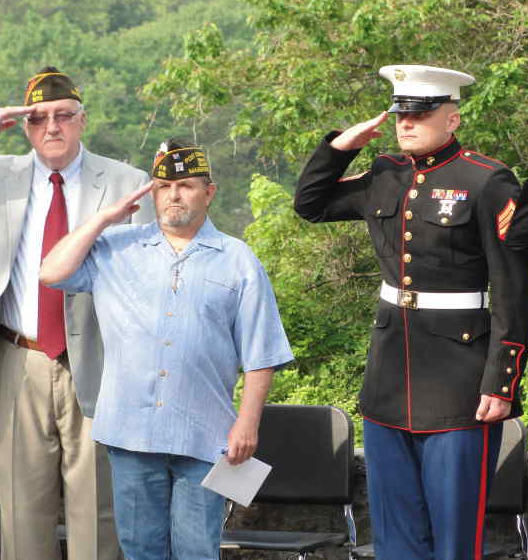By Len Abram
“Patriotism,” Samuel Johnson said to his friend and biographer Boswell in 1775, “is the last refuge of a scoundrel.” What Johnson had in mind was false patriotism, the sort of politician who runs the flag up the pole and while the citizens are saluting, the scoundrel fleeces them.
No one is sure if Johnson had in mind any person or state in his view of patriotism. It might have been the new American republic, whose rough birth Johnson observed with concern from London. Johnson disliked Americans for their treason against the English crown and Parliament. If the American colonists wanted self-government, he complained, let them move back to England. Besides, Johnson was an abolitionist ahead of his time. How could the colonists talk about liberty when they enslaved a people? The question bothered the Founders and many a patriot as well.
Johnson did not live to see the 1860s, to witness the former colonists suffering through a Civil War with 600,000 dead – a quarter of South’s young men – to purge country of the dreaded slavery. It is a tragedy of American life that the Founders, who created the most successful republic in human history, had not solved the predicament of slavery in 1776 or 1787.
In 1864, the price of union and emancipation was so high that until Lee’s surrender Lincoln worried that the public would demand a halt and compromise, which may have left the South and slavery in place. General Grant delivered to Lincoln victory. The gavel in court may remind us that behind the law, not above it, but behind it, is force, the power to compel others to do what is right when they refuse. To carry out that terrible decree, we most often ask our young to bear the burden.
Navy Seals are required to swim 50 meters under water with one breath. An Army infantryman or a Marine on patrol carries 60 pounds in body armor and equipment, sometimes in 120 degree heat. That’s a young person’s game, so when there are casualties, the dead and the wounded, the loss is suffered twice, once for the individual and another for how his or her young life was cut short and unrealized.
At this time of year, between Memorial Day and July 4, Independence Day, between the beginning of the summer season and its hot midst, we celebrate patriotism, flags and fireworks. Love of country is unlike love of family or place or home. It is all of those, but greater, because it blends the personal with the abstract, ideas and ideals.
It’s about our country, what it stands for: Our rights as citizens are undeniable, granted not by men, but by the Almighty as the Founders conceived of the deity. Freedom is the natural order of the universe. We are born equal and free. Whatever our circumstances, often inherited, we are in charge of ourselves, to realize our own potential, to pursue our own happiness.
“What changed the immigrant into a new man a half hour after landing in New York City?” asked the 19th-century historian Henry Adams. We know. The Biblical prophet told us where we should go and what we should do. To embrace peace and turn dreadful weapons of war into farming tools, pruning hooks and plows. We are not there yet, though we try. Memorial Day honors those who have loved their comrades and their country more than life itself.
Abrams is a long-time Belmont resident whose short story, “Cup of Kindness”, appears in the third volume of “Fenway Fiction” an anthology about the Red Sox and Fenway Park. His first novel is in pre-publication.








Leave a Review or Comment